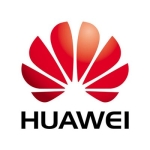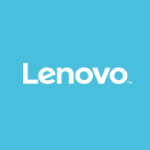What is our primary use case?
We use it for block storage for our entire VMware environment, which runs Windows, Exchange, and SQL Server. The Unity also provides block storage for bare metal Windows Server that run our backup software. We also use file storage primarily to store images.
I use it with three projects that I directly work with. Each of those projects has 80 to 100 virtual servers. We have sysadmins who are dedicated to each project and do all the admin tasks, like checking VMs, servers, storage, etc. There is a larger team of five or six systems engineers who backstop all three of those projects. We focus on architecting and configuring any servers, storage, and networking. We may also be called in to resolve performance concerns.
How has it helped my organization?
Unity/Unity XT is significantly more user friendly than VNX.
What is most valuable?
We can do both block and file storage on one unit. For our projects, we use both of those functions. This is a key feature for us, along with very solid, predictable performance.
What needs improvement?
We use VMware in a number of projects but there isn't very good visualization of the storage from VMware or vice versa. I'm hopeful this improves in the follow on product, PowerStore.
For how long have I used the solution?
I have been using this solution for the past seven years, previously at Dell and three years with my current company.
What do I think about the stability of the solution?
Stability has been very good, even the older models of Unity are quite good. The non-XTs and the XTs have been absolutely stable. We have had a couple of small hardware glitches, e.g., I have had to replace an LCC. That is literally it over the last three years.
What do I think about the scalability of the solution?
This is a newer model for us. Out of the three projects that I have worked on, two of them are using the older model and the XT is primarily in another project. We have tons of scalability in it. We have a whole rack dedicated to Unity, and it is pretty much empty. We have probably close to a petabyte of storage in there, and it is still pretty much empty. Scalability looks really good.
Where we would run into a scalability problem, we are going to do a lot of image storage, and that doesn't compress well. So, flash drives wouldn't really help us. We need a big, scalable object storage system. That is where Isilon comes in. We have about three and a half petabytes of Isilon at each of that project's sites.
How are customer service and support?
The technical support has been really great. I have never had a problem that they were not able to get to the bottom of pretty quickly.
How would you rate customer service and support?
Which solution did I use previously and why did I switch?
We do have Dell EMC SC storage, which is very simple and straightforward, which is good for our small remote locations. However, it doesn't have the performance or features that the XT would. As far as block storage, Unity XT is probably the best bank for the buck for us because we can get block and file storage in one package. We don't have to buy a separate Isilon for object storage.
Including VNX, SC, and Unity/Unity XT, Dell EMC has provided all the storage solutions at the company for the last 20 years.
How was the initial setup?
The initial setup was super easy for the most part.
I will note one issue. This might be on the sales team, but we had a need for encryption that I am sure we mentioned. However, the Unity that showed up at our data center did not have the licenses for encryption at rest. I would love to see Data At Rest Encryption (D@RE) be just the default since I can't imagine anyone wouldn't want it at this point. It would have made life easier for me. I definitely had to completely wipe out an array three days after we set it up, because it didn't have encryption, then redo it with a new license.
What about the implementation team?
Vendor did initial install. I reinitialized it and did the final install.
What was our ROI?
There are cost savings from having a single solution that does both file and block storage.
What's my experience with pricing, setup cost, and licensing?
Pricing could always be better. Dell likes to charge a premium price for these products.
I would say the major complaint with pricing is that Dell EMC comes to us and gives us a an initially high price. We usually need to go back and forth to negotiate the price to a more reasonable level. We are not going to just say, 'Yes,' because we are out of time."
I don't know if the discounting structure needs to be better or more consistent.
Having worked at Dell EMC previously, I know they have discount floors, etc. I just wish they would note, "This company gets a 55% discount." Just be consistent with it. Company-wide, we buy all our storage from them. They should be able to give us something a little more structured.
Which other solutions did I evaluate?
In one project, we needed more scalability that the Unity can provide so we are using Dell EMC Isilon for it. In that case, I needed multiple PB of object storage.
Otherwise, we have not looked at much else. In the future, however, we will probably transition to Dell PowerStore.
What other advice do I have?
I would rate it as nine out of 10. It is definitely one of the most robust, solid, well-performing products that I have dealt with. It is set it and forget it, which is wonderful for my piece of mind.
Which deployment model are you using for this solution?
On-premises
Disclosure: PeerSpot contacted the reviewer to collect the review and to validate authenticity. The reviewer was referred by the vendor, but the review is not subject to editing or approval by the vendor.











